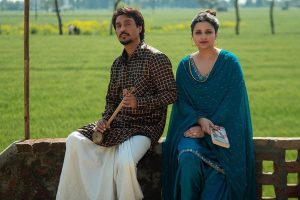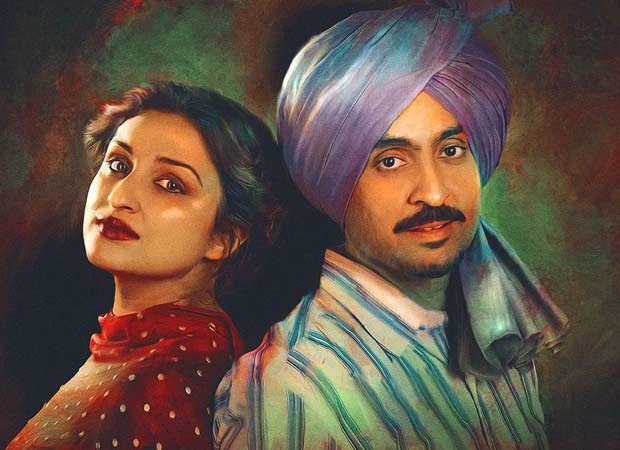Amar Singh Chamkila, who molded the Punjabi music business and inspired generations after him, is still mysterious decades after his death. We delve deeply into the life and legacy of Chamkila before Diljit Dosanjh’s film, Amar Singh , opens.
Amar Singh Chamkila is the most famous name in Punjabi music history. Despite the fact that millions of people were moved by his melodies, his music was viewed as low-brow due to the double-entendre lyrics.
One may argue that the words of Diljit Dosanjh’s song “Born to Shine” have a deep connection with his brilliant career. Chamkila was meant to be a star. What better way to sum up his transformation from a Dalit laborer to a renowned singer?
The most well-known Punjabi celebrity of our time, Diljit Dosanjh, is starring as his in the upcoming film Amar Singh Chamkila, directed by Imtiaz Ali. The movie aims to provide insight into the mysterious life of the well-known musician who was fatally shot at the age of 27.
Parineeti Chopra is another star of Amar Singh Chamkila, which will debut on Netflix on April 12.
We go deeply into the life and legacy of Chamkila, the folk icon whose impact spans decades and shaped the Punjabi music industry, prior to the film’s debut.
AMAR SINGH CHAMKILA’S EARLY LIFE
Dhani Ram Chamkila was born on July 21, 1960, into a poor Dalit Ramdasia family in Dugri village, which is near Ludhiana.
Despite being a laborer in Ludhiana’s textile industries, he was passionate about music. His love for theater led him to join ensembles where he studied singing, harmonium, and tumbu (a single-string instrument) playing.
When Dhani was eighteen, he went up to the renowned Punjabi folk singer Surinder Shinda. Shinda took him under his wing after being moved by his unpolished voice. He quickly made a name for himself as a prolific lyricist in Shinda’s group. In addition, he worked with notables including Kuldeep Manak and Muhammad Sadiq.

The Hollywood Reporter
GLITTERY START: CHAMKILA RECORDS FIRST ALBUM
Dhani chose to go solo in 1979 and collaborated with folk singer Surinder Sonia to create his debut solo album. When the eight-song album “Takue Te Takua” was released in 1979, Dhani and Sonia became instant celebrities in Punjab.
Dhani took on the stage name Amar Singh Chamkila due to the album’s success, and he didn’t go back after that. The English translation of he is sparkling.
Soon after, Chamkila and Sonia’s album Baapu Saada Gum Ho Gaya was released, which increased the singers’ demand for engagements on stage and at weddings. However, the difference in their incomes caused Sonia and he to break up. he aspired to wage equity.
Next, before starting his fruitful collaboration with vocalist Amarjot Kaur—who would eventually become his wife—Champila briefly worked with singer Usha Kiran.
The song Pahile Lalkare Naal Main Darr Gayi, off their debut LP record Bhul Gayi Main Ghund Kadna, launched them to popularity.
After 1985, He and Amarjot put out three devotional vinyl records: Talwar Main Kalgidhar Di Haan, Baba Tera Nankana, and Naam Jap Le. The two were allegedly performing in a nearly “Brechtian style.”
Filmmaker Kabir Singh Chowdhry, who directed the Mehsampur biopic on his, reportedly said to Scroll, “On stage, they were quite connected with each other; it was like they were having a discussion, with her saying something and him answering.
CHAMKILA: THE HERO OF THE WORKING CLASS
“Chamkila’s music infused new themes and topics connected with everyday village life and ethos and expressed the changes taking place in their life as a result of the Green revolution in Punjab and its encounter with modernity,” Kumool Abbi, a sociologist and authordescribing how Punjab’s shifting society was reflected in his music.
According to Kumool Abbi, a sociology professor at Punjab University, he not only reflected on the different vices in society but also spoke for the Dalit community. “Ki Zor Gareeban Da has become a very popular song of his. He talks about the suffering of the impoverished and the dispossessed in his songs. His well-known songs are about working-class individuals, such as mechanics, electricians, and truckers.”
With his visceral, emotionally charged music, he eclipsed his peers. The only face and voice that people desired to see and hear was Chamkila’s.
Chamkila’s close friend and lyricist Sawarn Sivia said to The Indian Express in an interview prior to his death last year that “he preferred recording his songs during the monsoon.” Two or three marriage performances a day were the norm for the remainder of the year. In just 11 months during the height of his career, he attended an incredible 411 programs. His unexpected rise to fame had a significant influence on other well-known vocalists of the era. His enormous popularity eclipsed theirs to the point where people would only ask for his performances.
Over a ten-year career, he sung over a hundred songs, the majority of which were unreleased when he passed away in 1988.

Telegraph India
“EVEN SRIDEVI WAS A MASSIVE FAN OF CHAMKILA”
In one of his earlier YouTube appearances, Sawarn Sivia, whose friend looked as handsome as Amitabh Bachchan, called Chamkila a ‘jewel of a human’.
“The people of Punjab adored Amr Singh Chamkila. he is only known to the public as a vocalist. Few people are aware of what a wonderful person he was. He once saw my mother was ill when he returned home in 1986. When he gave me Rs 10,000, it was a substantial sum of money.”
Even the late Bollywood actress Sridevi, according to Sawarn, loved Chamkila and wanted to appear on screen beside him.
“Sridevi liked Amar Singh Chamkila a much. She requested that he play her hero in a movie. But he admitted to her that he couldn’t speak Hindi. He declined her promise to receive language instruction from her within a month, claiming that “I will lose Rs 10 lakh in that one month.” Sawarn stated in the YouTube video, “Sridevi promised to work with him on a Punjabi movie, but it was not able to happen.

Koimoi
CHAMKILA WAS HATED BY JAT CO-SINGER’S MARRIAGE
However, Chamkila’s songs’ themes of drug addiction, alcoholism, hypermasculinity, and extramarital affairs offended some people.
Chamkila “became a symbol of vices” for the militants, according to sociologist Kumool Abbi, who “took upon themselves the task of purging society of all its evils.”
“With Chamkila’s songs, everything that individuals had repressed and suppressed inside themselves surfaced, and they were unable to accept it. They called his music filthy, disgusting, and unacceptable as a result, Kumool Abbi told IndiaToday.In.
In his private life, he struggled with bitterness and contempt over his second marriage to Amarjot, his singing companion. It was difficult for certain members of Punjabi society to accept the Dalit singer’s marriage to a Jat wife.
Between the two, a boy was born.
The murder of Chamkila remains unsolved.
Chamkila and Amarjot were scheduled to perform in Mehsampur, Jalandhar, on May 8, 1988. Three attackers in masks shot them dead right after they disembarked from their famous white envoy. They also lost two members of their band instantly.
In this case, no one has been taken into custody yet. However, there are a lot of conspiracy theories behind the deaths of Amarjot and Chamkila.
Some people think that the terrorists from Khalistani are responsible for his death because they had a long-standing grudge against him and intended to purify the society. Some claim that his music competitors hired him to do a hit job.
Some, however, contend that because Amarjot was a member of a higher caste and her family disapproved of her marriage to a Dalit man, his murder was an act of honour killing.

News18
Chamkila’s abrupt demise added to his mystique, much as his quick ascent.
Among the millions impacted by Chamkila is Diljit Dosanjh. Actually, this is his second film about the renowned vocalist, Amar Singh Chamkila, which was directed by Imtiaz Ali. He had previously acted in the movie Jodi.
A Bollywood movie released thirty-five years after his passing bears witness to the accomplishments of the Punjabi vocalist throughout his brief ten-year career.
View the Amar Singh Chamkila trailer here:
The lasting influence of Amar Singh Chamkila on Punjabi music is still as strong now as it was several decades ago. His unrelenting dedication to his craft continues to strike a chord with viewers everywhere. One thing is certain, however, as Imtiaz Ali’s film is ready to reveal the little-known history of this folk hero: Chamkila’s legacy will live on for many generations to come.

